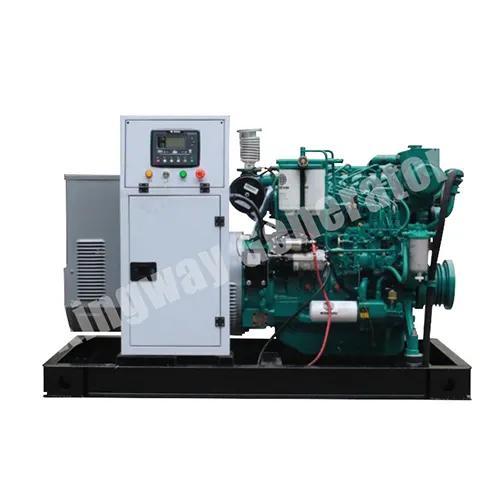A diesel generator is designed to provide backup power during a power outage. Here's how it performs in such situations:Automatic Start: Many diesel generators come with an automatic transfer switch (ATS) that detects a power outage and starts the generator without human intervention.
Fuel Supply: Diesel generators require a steady supply of fuel. During a power outage, the
Marine Diesel Generator draws diesel fuel from its tank to operate.
Power Generation: Once started, the diesel engine converts diesel fuel into mechanical energy, which is then converted into electrical energy through an alternator. This process provides power to connected loads.
Load Management: Diesel generators can handle varying loads, but it's important to match the generator's capacity with the power requirements of the devices being powered to avoid overloading.
Runtime: Depending on the size of the fuel tank and the load, a diesel generator can run for several hours to days during an outage, making them suitable for extended power interruptions.
Maintenance and Reliability: Regular maintenance is crucial for optimal performance. Well-maintained diesel generators are reliable and can operate effectively during prolonged outages.
Noise and Emissions: Diesel generators can be noisy and may emit pollutants, so they are often placed away from living spaces or equipped with noise-reduction measures.
In summary, a diesel generator is a robust solution for maintaining power during outages, offering reliability and longevity, provided it is properly maintained and fueled.

